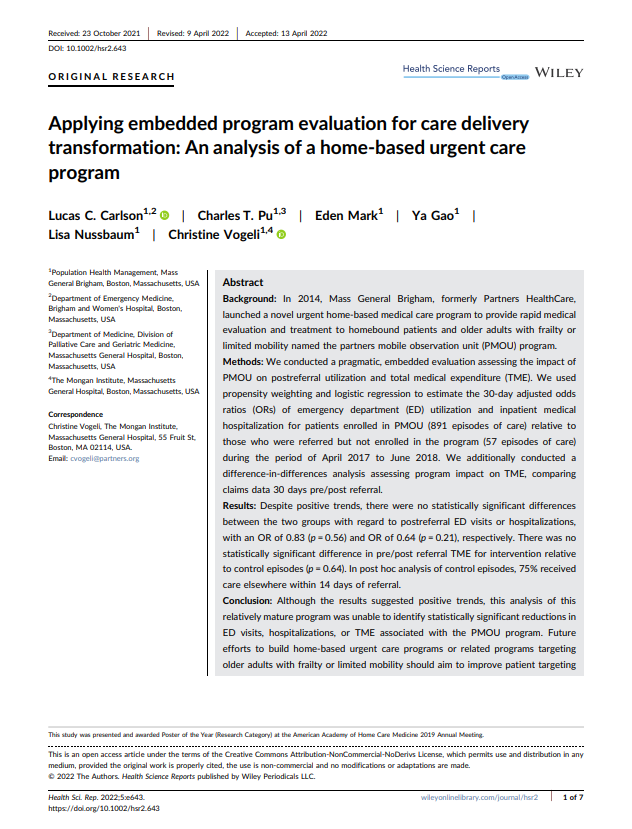Headline
A home-based urgent care program for frail, homebound older adults did not reduce emergency department visits, hospitalizations, or total medical expenditure.
Context
Home-based care models have shown promising results in lessening hospitalizations and emergency department (ED) visits and associated costs, but there is limited evidence evaluating the impact of programs that provide urgent home-based medical care. This study evaluates the Partners Mobile Observation Unit, an episodic home-based urgent medical care program at Mass General Brigham that focuses on frail, homebound older adults. This article also shares program details, including team roles and patient identification methodology.
Findings
The program was not associated with statistically significant reductions in ED visits, hospitalizations, or total medical expenditure for patients enrolled versus patients who were referred by not enrolled. These null results could have been caused by multiple factors, from small sample size to insufficient patient enrollment criteria.
Takeaways
Other home-based urgent care programs or similar programs supporting homebound populations should improve patient selection efforts and identify other changes in program operations that could reduce health care utilization and spending.


